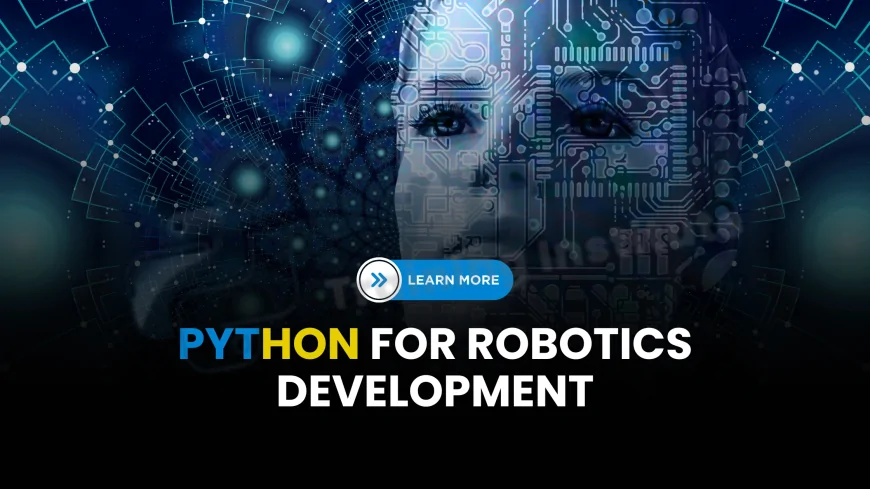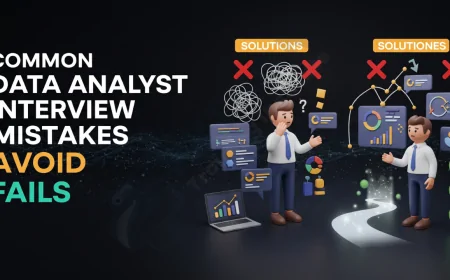Learn Python for Robotics Development Pune | Robotics Programming with Python Training Pune
Discover top Python courses for robotics development in Pune. Learn Python programming for robotics with hands-on projects, expert trainers, and industry-relevant curriculum designed for aspiring robotics developers and engineers.

Introduction to Python in Robotics
Robotics combines multiple disciplines such as engineering, software development, and AI. Thanks to its ease of use and flexibility, Python has become a popular choice for programming robotic systems. In Pune, a growing technology hub, many institutes are now offering specialized courses to learn Python specifically for robotics applications.
Why Python is Ideal for Robotics Development
Python’s clear syntax, extensive library collection, and vibrant community make it a preferred language for creating robotics applications.. Here are some reasons why Python is favored in robotics:
- Simplicity and readability: Easy to write and understand, reducing development time.
- Extensive libraries: Libraries like NumPy, OpenCV, and ROS (Robot Operating System) bindings simplify robotics programming.
- Fast prototyping: Swift experimentation with algorithms speeds up the overall development cycle.
- Cross-platform support: Python works seamlessly across different operating systems used in robotics.
- Integration capability: Easily integrates with other languages and hardware interfaces.
Key Python Skills Required for Robotics
To effectively use Python for robotics, learners should develop the following skills:
- Core Python Programming: Data types, control flow, functions, classes, and modules.
- Working with Sensors and Actuators: Interfacing Python with hardware components.
- Robot Operating System (ROS): Understanding ROS concepts and Python APIs for robotics control.
- Computer Vision: Using OpenCV for image processing and robot vision tasks.
- Data Analysis: Using libraries like Pandas and NumPy to process sensor data.
- Automation and Scripting: Writing scripts to automate robotic behaviors.
Popular Robotics Frameworks Using Python
Python supports many robotics frameworks that facilitate development and deployment:
- Robot Operating System (ROS): A widely used framework providing tools and libraries for building robot applications.
- OpenCV: Library for computer vision, essential for robot perception.
- PyRobot: High-level Python library for robot control developed by Facebook.
- TensorFlow and PyTorch: Used for AI and machine learning in robotics.
- MQTT: Protocol libraries for IoT-based robot communication.
Typical Course Structure for Robotics Python Training
Courses designed for Python in robotics often include:
- Introduction to Python basics and advanced concepts.
- Hardware fundamentals and interfacing sensors & actuators.
- ROS basics: nodes, topics, messages, and services.
- Computer vision techniques with OpenCV.
- Simulation tools like Gazebo.
- Project work involving real-time robot programming.
- Machine learning basics applicable to robotics.
Learning Methods and Hands-On Training
The best robotics Python courses emphasize hands-on training through:
- Lab sessions with actual robot kits or simulators.
- Project-based learning for building autonomous robots.
- Collaborative group work to solve real-world challenges.
- Mentorship from industry experts.
- Use of cloud platforms and online resources for coding practice.
Job Opportunities After Robotics Python Training
Completing Python robotics training opens doors to various roles:
- Robotics Software Engineer
- Automation Engineer
- Embedded Systems Developer
- AI and Machine Learning Engineer
- Research Assistant in Robotics Labs
- IoT Developer for Robotics Applications
Best Python Robotics Courses in Pune
Pune hosts several reputed institutes offering Python for robotics development courses. These institutes provide certified, industry-relevant training with flexible timings and internship support. Examples include:
- Webasha Technologies: Comprehensive robotics Python course with real hardware projects.
Tips to Learn Python for Robotics Faster
- Start with Python fundamentals and practice daily coding.
- Work on small robotics projects using Raspberry Pi or Arduino.
- Join robotics and Python communities in Pune for peer learning.
- Attend workshops and hackathons to build practical skills.
- Make use of online resources like ROS tutorials and Python robotics blogs.
- Collaborate on open-source robotics projects.
- Focus on problem-solving and algorithm development.
Frequently Asked Questions (FAQs)
1. Why is Python preferred for robotics development?
Python offers simplicity, extensive libraries, and integration capabilities, making robotics programming faster and more efficient.
2. Do I need prior programming experience to learn Python for robotics?
Basic programming knowledge helps, but many courses start with Python fundamentals to bring beginners up to speed.
3. What hardware is used in Python robotics courses?
Common hardware includes Raspberry Pi, Arduino, sensors, actuators, and robot kits compatible with Python programming.
4. How long does a typical Python robotics course last?
Courses vary from 3 weeks to 6 months, depending on depth and mode of training (part-time/full-time).
5. Can I learn robotics programming online in Pune?
Yes, many Pune institutes offer online Python robotics courses with live sessions and project work.
6. What is ROS, and why is it important?
Robot Operating System (ROS) is a framework providing tools and libraries to build robot software efficiently. Python APIs for ROS are widely used.
7. Are there job opportunities after completing Python robotics courses?
Yes, roles like robotics engineer, automation specialist, and AI developer are common career options.
8. Is Python suitable for both hardware and software parts of robotics?
Yes, Python can control hardware components and develop software algorithms for robotics.
9. Do these courses cover AI and machine learning for robotics?
Many courses integrate AI/ML basics to help robots perform intelligent tasks.
10. What kind of projects can I expect in Python robotics training?
Projects include autonomous vehicles, robot arms, sensor integration, and vision-based navigation systems.
11. Are internships provided during these courses?
Some institutes offer internships or industry projects to gain real-world experience.
12. Can I pursue robotics Python courses alongside a full-time job?
Yes, many institutes offer weekend or evening batches for working professionals.
13. What programming tools are commonly used?
Popular tools include Jupyter Notebook, VS Code, ROS tools, and simulation platforms like Gazebo.
14. Are there certifications after course completion?
Most courses provide certificates recognized by the industry or educational boards.
15. Is knowledge of electronics necessary for these courses?
Basic electronics knowledge is beneficial but not mandatory as many courses teach hardware interfacing basics.
16. How much do Python robotics courses in Pune typically cost?
Costs vary widely, ranging from INR 15,000 to INR 80,000 depending on course content and duration.
17. Can Python robotics training help in IoT development?
Yes, many robotics applications overlap with IoT technologies, and Python is used in both fields.
18. What is the future scope of robotics with Python skills?
The demand for robotics professionals with Python expertise is expected to grow rapidly with automation trends.
19. How do I choose the best institute for robotics Python training in Pune?
Look for experienced trainers, curriculum relevance, hands-on projects, placement support, and student reviews.
20. Are there community groups or forums for robotics learners in Pune?
Yes, Pune has active robotics and Python user groups where learners can network and collaborate.
Conclusion
Learning Python for robotics development in Pune offers an exciting pathway to enter the cutting-edge world of robotics and automation. With the city’s growing tech ecosystem and availability of specialized courses, aspirants can gain the skills to build intelligent robots that can transform industries. Whether you are a student, working professional, or hobbyist, enrolling in a hands-on Python robotics course in Pune can boost your career and open new opportunities in robotics innovation.
What's Your Reaction?
 Like
0
Like
0
 Dislike
0
Dislike
0
 Love
0
Love
0
 Funny
0
Funny
0
 Angry
0
Angry
0
 Sad
0
Sad
0
 Wow
0
Wow
0













